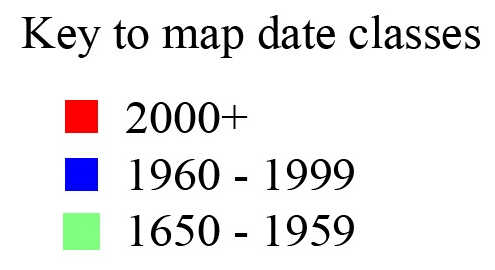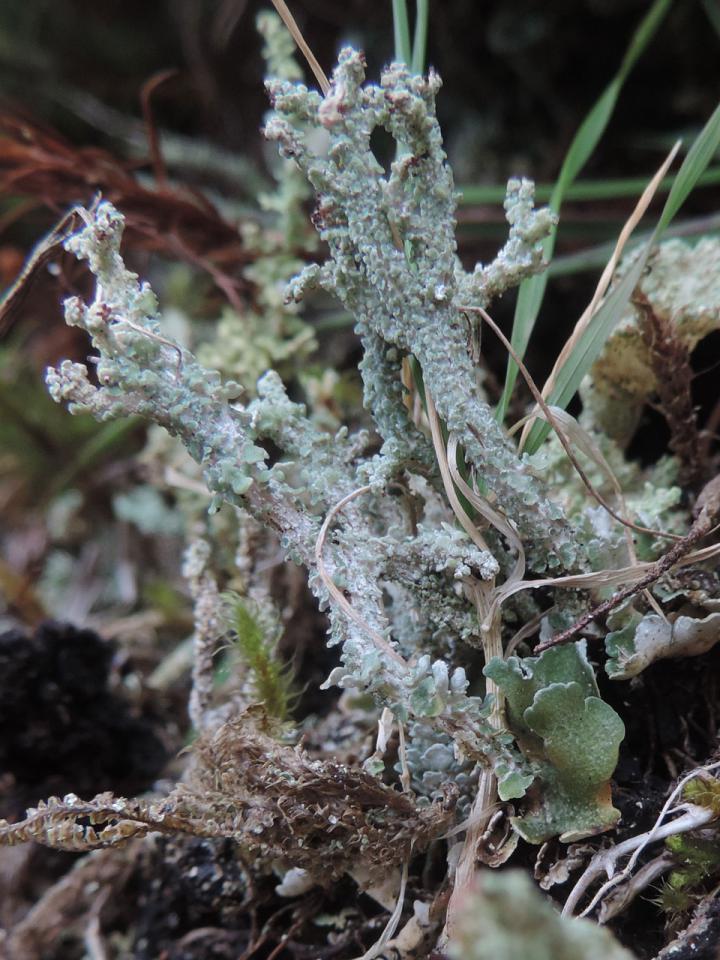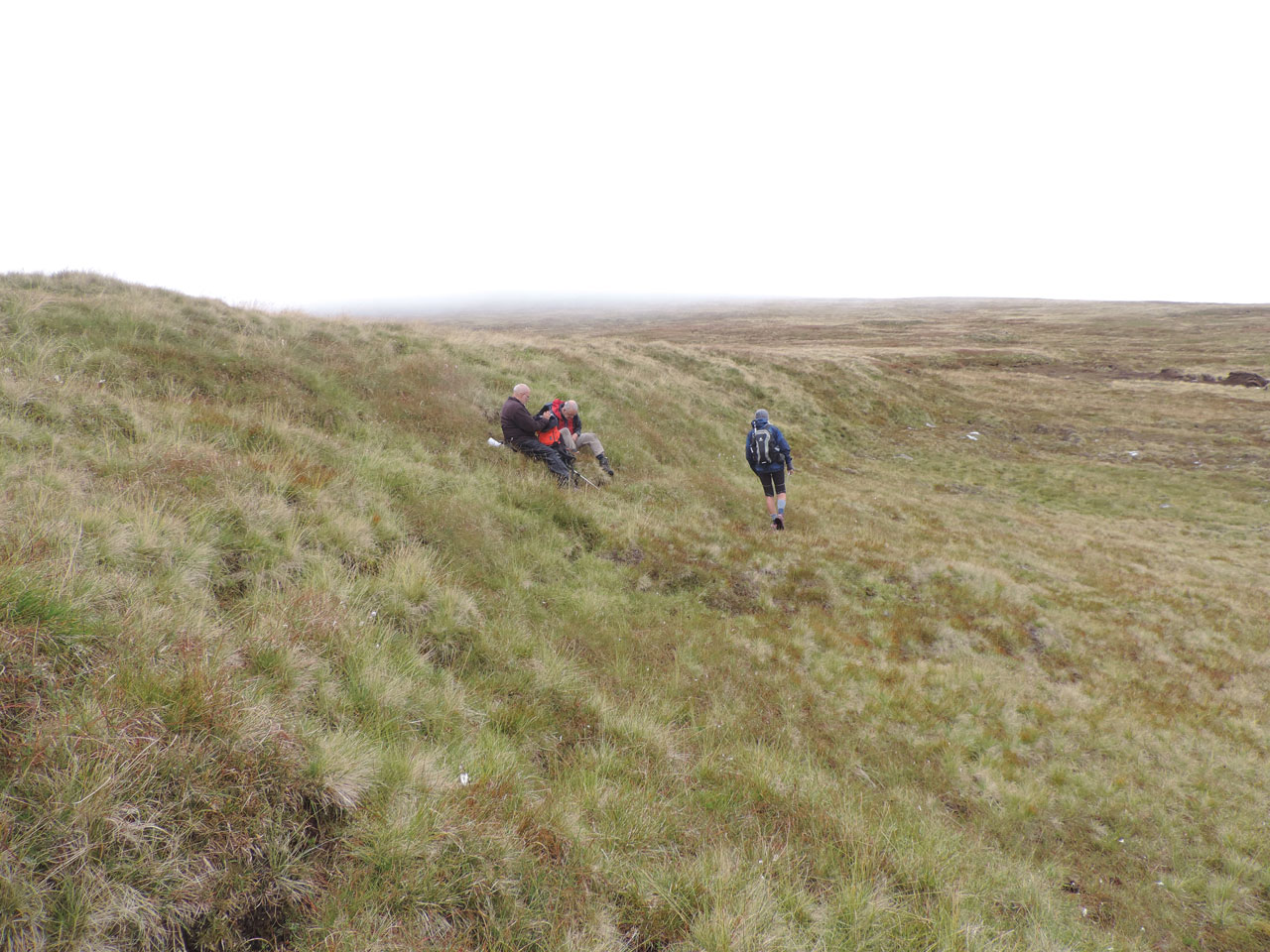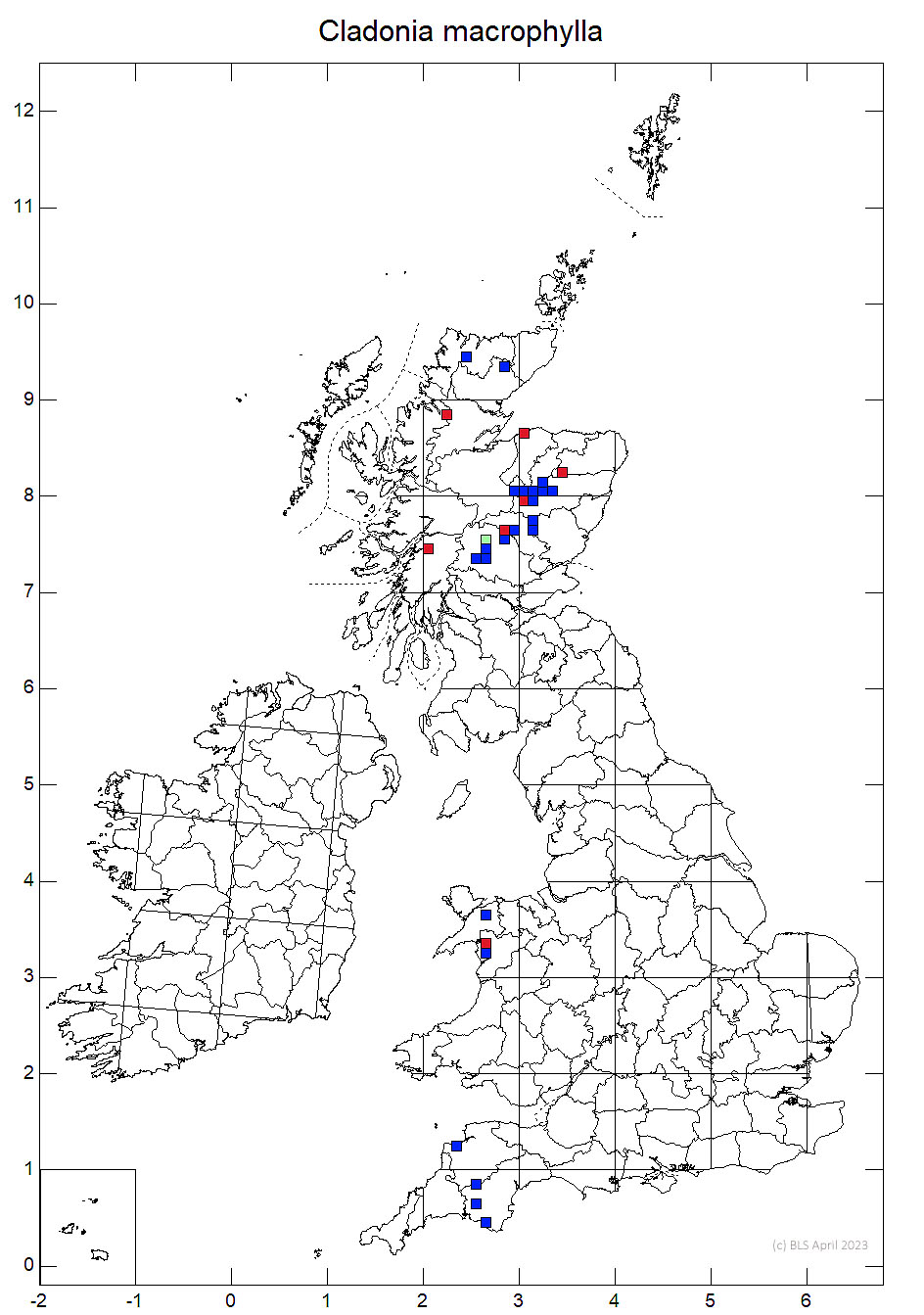A distinctive, if rare Heathtail Cladonia, characterised by the ridged-fissured, partly decorticate podetia with scattered to crowded rounded squamules and the presence of psoromic acid (Pd+ yellow). A rarely recorded species of damp upland habitats and mine sites on lower ground.
Podetia 2–4 (–5.5) cm tall, grey-green to brown, often contorted, unbranched or sparingly branched particularly in the upper half, without cups, the apices ± blunt, the surface often ridged, fissured and gaping-lacerate, with numerous ± discrete crowded rounded to peltate squamules intermingled with grey or black decorticate patches, especially towards the base. Basal squamules 3–6 mm diam., often well-developed, often forming mats, round or elongate, ± incised, the upper surface greenish and the lower surface white. Apothecia and pycnidia brown, frequent, terminal on podetia; pycnidia also on peltate squamules of podetia. Thallus C–, K–, KC–, Pd+ yellow, UV– (psoromic acid).
It is characterised by the ridged-fissured, partly decorticate podetia with scattered to crowded peltate squamules; the presence of psoromic acid (Pd+ yellow) is diagnostic.
Montane, on acid peat, especially on scree and amongst mossy boulders, including moderate snow lie habitats, also associated with mine spoil heaps

Rare and local but certainly under recorded in the Scotland (Highlands) along with outliers (Snowdonia, N. Wales & Dartmoor, Devon).
Britain: Notable
Wales: Vulnerable
England: potentially extinct, not seen since 1987, requires searching for.
Pino-Bodas, R., Sanderson, N., Cannon, P., Aptroot, A., Coppins, B., Orange, A. & Simkin, J. (2021). Lecanorales, Cladoniaceae: including the genera Cladonia, Pilophorus and Pycnothelia. Revisions of British and Irish Lichens 19: 1-45. Link
Text by N A Sanderson, based Pino-Bodas et al (2021)


